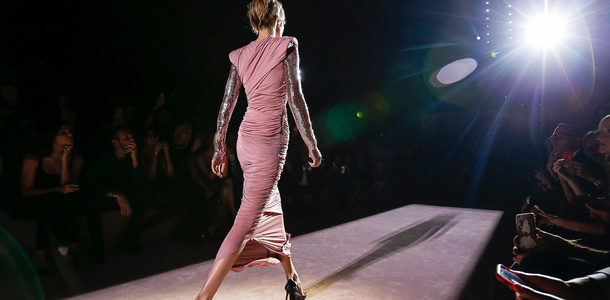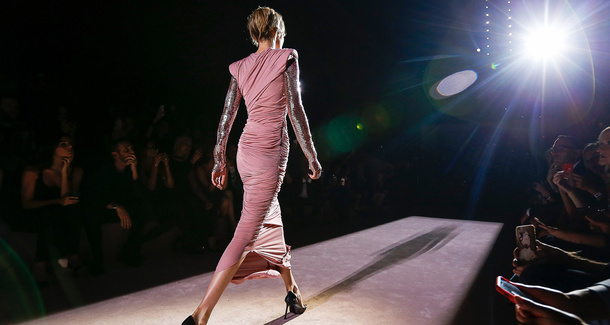
Many New York designers are so frustrated with the state of America’s fashion system that they want to break away entirely, writes Lauren Sherman.
NEW YORK, United States — In New York, the epicentre of America’s fashion industry, fashion is not so fashionable anymore. And designers, the ultimate arbiters of trend, can feel it.
“I don’t understand fashion today, at all, as a fashion designer. I’m also sort of burned out by it and really not interested in a lot of it,” said Narciso Rodriguez backstage after his Spring/Summer 2019 runway show, which took place a few weeks ago, on the same day he received an award from the Council of Fashion Designers of America (CFDA) for a lifetime of achievement. “The bigger the fashion show, the better the show, the more you spend. And that’s great, and it’s all fashion so you celebrate it, but it’s also the part that makes me want to turn away from it.”
Rodriguez, who was once, many years ago, the creative director of the LVMH-owned fashion house Loewe, doesn’t need the buzz of September to give his clothes weight: he’s at a point in his career where he seems content to please his clientele with draped silk blouses, elongated trousers and curved shoulder jackets that will simply wear well.
Like many of his peers, Rodriguez appears to have grown tired of Fashion with a capital F. Why?
It’s not like people aren’t spending money on clothes and accessories. The luxury market grew 5 percent last year, according to Bain. But upstart digital brands and European luxury houses with highly creative designers and direct-to-consumer business models have captured much of this growth, while many of New York’s labels — which depend on ailing American department stores for distribution, don’t stage the kind of high-impact runway shows adored by the internet and have been less successful at renewing themselves creatively — have suffered.
For many Americans, traditional name-on-the-door designer labels don’t have the emotional impact that they once did. Consumers are more likely to spend on internet-born, un-fashion brands like Everlane or an experience that plays well on their Instagram feed.
For instance, have you ever heard of the Los-Angeles brand Doen? It only has 117,000 followers on Instagram and is “designed” by a collective of women, not a star talent, but its uncomplicated bohemian silhouettes sell out regularly, which underscores that it’s the fashion industry, more than the market for cool clothing, facing a reckoning… Read More














